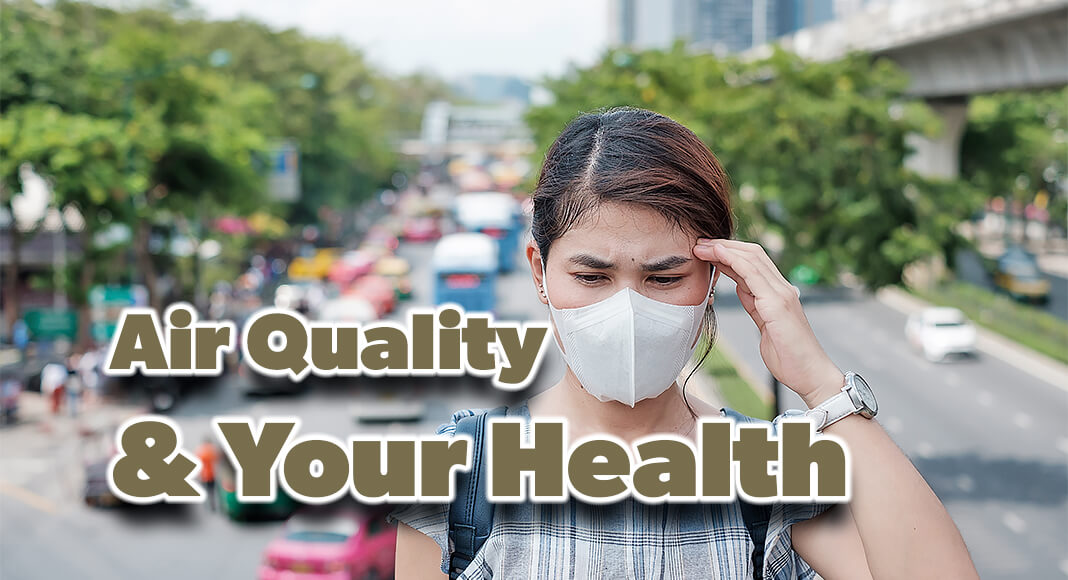
Mega Doctor News
| AT A GLANCE |
| Today’s the day to start thinking about air quality. |
| Learn how to navigate air quality conditions with the Air Quality Index and find other helpful resources available to you. |
What you can do
The Air Quality Index (AQI)
Sometimes the air quality outdoors may not be safe for everyone. What can you do?
Pay attention to the Air Quality Index (AQI). The AQI tells you when high levels of air pollution are predicted and how air pollution affects your health.
Finding the AQI is easy. It’s on the Web, on many local TV weather forecasts, or you can sign up for free e-mail tools or download the AirNow app.
Air Quality Index scale
The AQI is easy to use. If the AQI predicts a “Code Orange” (unhealthy for sensitive groups) day don’t cancel your plans—use the AQI to help you plan a better time or place for them.
The AQI tells you about major air pollutants in the U.S. that are regulated by the US Environmental Protection Agency, including ozone and particle pollution. Ozone and particle pollution may harm the health of hundreds of thousands of Americans each year.
Ozone and particle pollution
Let’s say that the ozone level where you live is predicted to be Code Orange tomorrow. If you’re a runner—even if you’re healthy—that air quality could hurt you. Using the AQI, you can plan your run for when ozone levels will be lower, shorten your run or walk instead, or run on a treadmill indoors.
Particle pollution has been linked to heart attacks and strokes, and even death in people with heart disease. On a day when particle pollution will be at Code Orange, do something less intense. Walk instead of run or do only lighter outdoor work.
Use the AQI Wherever You Go

Don’t forget to check the AQI when you’re on vacation or travelling within the U.S. No matter where you go, you can always access the AQI.
Resources
Respiratory health
Air pollution can make it harder for people with asthma and other respiratory (breathing) diseases to breathe.
Asthma
Find out how you can protect yourself if you’re living with asthma.
Chronic Obstructive Pulmonary Disease (COPD)
Learn about COPD, a group of diseases that can make it hard to breathe.
Heart disease and stroke
Air pollution can be harmful to heart health and may make it more likely that some people will have a heart attack or stroke. Learn the facts about air pollution and how you can keep your heart healthy.
Children’s respiratory health
Children and teens may be more sensitive than adults to the health effects caused by air pollution — especially children with asthma. Learn how air quality can affect how much outdoor activity is safe for children.
Air Quality and Outdoor Activity Guidance for Schools
Advice for travelers
Air pollution has decreased in many parts of the world, but it is worsening in certain industrializing countries. Travelers should be familiar with the air quality at their destination.
Wildfire guide factsheets
Factsheets on wildfire smoke safety from Airnow.gov. Most are available in Spanish as well.
Wildfire Smoke: A Guide for Public Health Officials
Information Source: CDC









